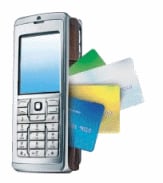By Walt Dickie, Executive Vice President
A recent article in The Atlantic proclaims that “the mobile payment wars are officially underway.” Visa was the first out of the gate, in late 2010, but a coalition of MasterCard and Google, with partners Citibank, First Data, and Sprint quickly followed. Google’s announcement – just a few days ago as of this writing – has, of course, set the technology world abuzz. Now all eyes are on Apple, which has a filed patent on a mobile payment system but, as usual, is being completely close-mouthed about when the necessary near-field communication support will appear on the iPhone (click here for millions of rumors). And, of course, start-ups, such as tech darling, Square, are appearing around the payment space and clever new applications are showing up to make use of NFC.
Normally, I take a dim view of buzz. It’s just too simple to jump on board every juggernaut and start proclaiming the end (or beginning) of the world. But marketing researchers should be getting excited about mobile payment because it’s potentially the most important thing since “friend” became a verb.
Here’s what Google said in their press release about Google Wallet: “… an open commerce ecosystem that … will make it possible for you to pay with an NFC wallet and redeem consumer promotions … while shopping offline.” Notice: They’re not talking about “payment,” they’re talking about “commerce.” And this is “offline,” not “online.” But the big idea is hidden behind “redeem consumer promotions.”
Here’s what happens when you haul out your Google Wallet – a phone app – to pay for something. First, your phone provides a unique identifier – it tells the system that you’re you – and, of course, it says that you want to pay for your purchase using your credit card account. But in the middle of the transaction the system also handles “consumer promotions.” It takes data it has – maybe the name and location of the store, your name, the article you’re buying, the price of the thing, maybe whether you presented a “coupon” – and it checks to see if, based on all that, you’re entitled to a special price.
You see the magic part? It checks a database in the middle of the transaction and acts on the data it finds there.
You can easily imagine all kinds of marketing opportunities: bank-, store-, or brand-based, maybe neighborhood-based “reward” or “frequent shopper” systems, “Groupon-like” sign-up promotional programs, and programs based on combining your online and offline purchasing came to my mind almost immediately.
MR-related applications, like in-the-moment short surveys, possibly incented by a discount calculated on the purchase, become straightforward. What if a marketing research supplier acted like the operator of a “preferred shopper” program and collected shopping behavior from a panel, making possible not only accurate in-the-moment research but also day-after, week-after, or month-after follow-ups, or instantaneous online qualitative with purchasers of newly introduced products or low-incidence products?
Accurate, individualized, real-time purchase data has always been available for web commerce, but now the same kind of data could be available in the offline world. Mobile payment makes the real world work more like the web.
Let’s take this a bit further: have a look in your wallet, and make a pile of all the things that could be represented as data records. Everything I carry, with the exception of a compact emergency car key, is nothing but data carried in a wallet-size form factor. Every single piece of it could be on my phone, and all of it could be added to a “mobile wallet” (which won’t be confined to payment for very long). Your membership card at the gym. Your driver’s license. Gift cards. Preferred cards. The pictures of your kids and dogs. A system for sharing those pictures with your “friends” and only your friends.
If you drive a newer car, the spare that activates its keyless ignition is also just a string of data sent via an NFC link. If my car wasn’t so old even my emergency key would fit nicely in my phone.
A mobile phone is nothing but a pocket-sized computer that can communicate with various kinds of networks after providing a unique identifier that identifies you, its owner, as having network privileges. Mobile “payment” or “wallet” systems put databases at the other end of those communications, and take action based on that data. Visa, MasterCard, Google, and Apple all want to control those databases, which will be the most important in the world in a very short time. Ambitious marketing researchers should be planning how they will play in this arena, and doing it sooner rather than later.









